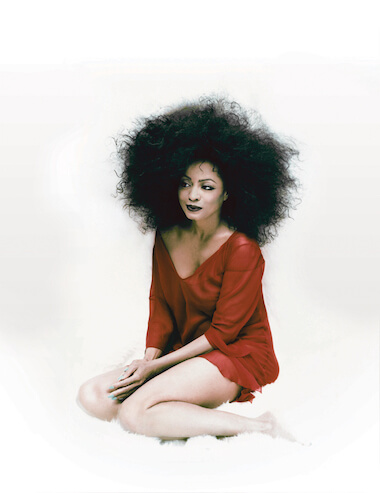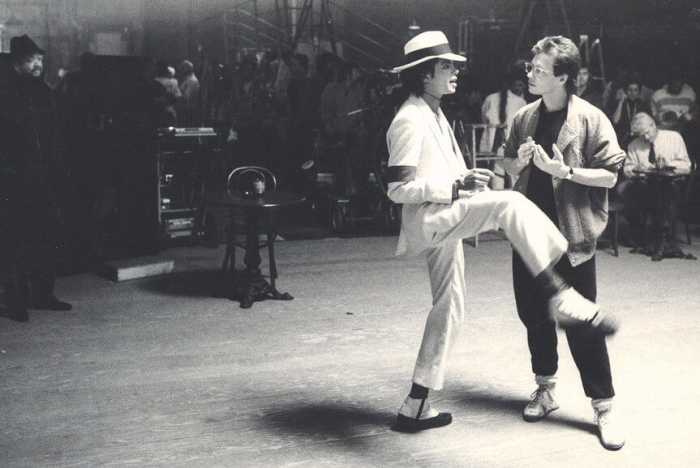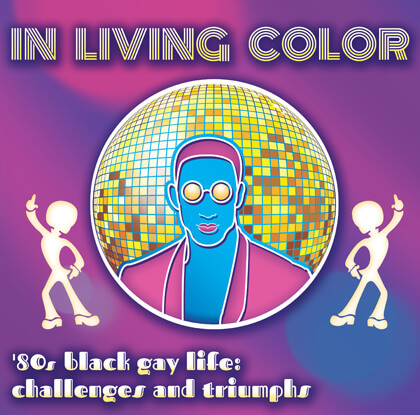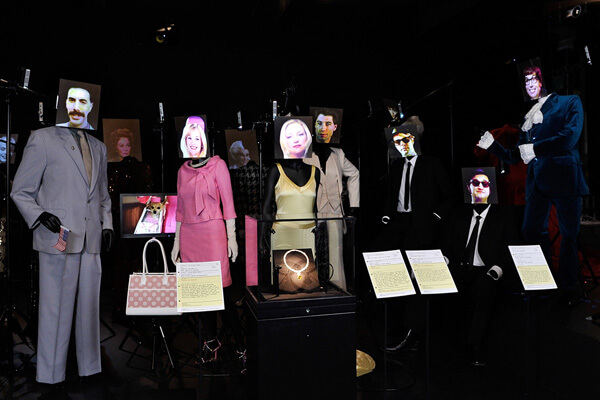On October 26, Tony-winning, Grammy-nominated star Melba Moore was honored by the HIV Experience Resource Organization at the group’s second annual Broadway and Ballet HERO Awards. The honor recognized this versatile performer’s work over the years in the fight against HIV/ AIDS.
Having caught Moore earlier this year in a spectacular engagement at the Metropolitan Room, in which she paid thrillingly sung tribute to various lady singers who’d inspired her, I was eager to catch up with her again, and she showed up in the Village, still as adorable, petite, and stylish as ever for a lunch interview that went on delightfully for hours.
I told her that I was a serious fan of hers as a kid in Hawaii, aching to graduate from high school and hightail it to Manhattan, where I could maybe catch her, if not in the by then-closed “Purlie” (for which she won the Tony), then possibly in another show. I already owned the “Purlie” cast album, as well as two quite fierce solo albums of hers. In 1972, I was delighted that she starred in a summer replacement TV variety show, along with her then paramour Clifton Davis, hot off “Two Gentlemen from Verona.”
Broadway, recording veteran, on wings of a comeback, honored for HIV work
So, the first question I asked was about that show, radical in its day for having two black performers hosting. Typically down to earth, she laughed, “I never thought about that because nobody knew who the hell I was. But that helped make me a star — all of the industries can: TV, Broadway, records. What happened was that Tony Award opened the door. Everybody respects that, and then will give you a chance. I keep getting royalties from it. ‘You have all these satellite stations,’ my daughter was telling me. It plays a lot on certain stations with specific genres. And it was great to see Clifton again at the Metropolitan Room after all these years.”
I said, “He looked terrific. You’re both such showbiz survivors, what an achievement! You were involved once, weren’t you? I think it’s so great that you are still buddies.”
Moore shot me a swift, wry look, “That is even more of achievement, I promise you! [Laughs.] But as far as surviving goes, you really have to love what you do, so you don’t give up.
“As for winning the Tony, on the night itself, I didn’t understand the categories and had never really heard of it before [Featured Actress in a Musical]. I still have this clipping that has a photo of me standing between Helen Hayes and Lauren Bacall! I had heard of them [laughs]. I’m there smiling, but thinking, ‘Where the heck am I?’
“It was so exciting. I really don’t remember what happened, though I later watched the tape. I remember Jack Jones called my first name and someone else’s last name, so that confused me even more. I didn’t know the categories, so I guessed they had already given out the award, and was getting ready to leave when I heard the audience screaming, “ Melba Moore! Melba Moore!’ Ohmigod, what’s wrong now? One of the stagehands said, ‘Don’t go, come back!’ And I went to the stage and they said I had won one. It was exciting but radical.”
In the 1970s, Moore’s place in the black diva firmament was somewhere in the middle between Queen of Soul Aretha Franklin and the glamour queen, Diana Ross. She cites both stars as among her greatest influences.
“‘Lean on Me,’ which is my signature song I got from Aretha, and she knows this. I was listening to her records like anybody else, and she liked to cover songs like ‘Rose of Spanish Harlem’. On the other side of that single was ‘Lean on Me,’ and I just loved it. I got my own arrangement of it, and after ‘Purlie’ I think my first concert was at Lincoln Center and it got a standing ovation. Long after that, I met Van McCoy and reminded him that he wrote that song, but I made my own arrangement of it and it’s been mine ever since.
“[Franklin] requested that I sing it. She knows I can’t sing nuttin’ like her and can’t be compared to her. She knows me and the way I sing, and also knows I just love her. She invited me to both her Christmas and birthday parties this year and asked me to sing. I like to say I took a few crumbs from the queen’s table.”
Franklin is well known for not suffering many people — fools or otherwise. She notoriously dissed Bette Midler, a former huge fan of hers, causing Midler, in her book “View from a Broad,” to give herself a maid named Aretha. I asked Melba if they really got along.
“She’s wonderful to me. Oh, Miss Ree Ree — she don’t take to everybody. We all have those feelings, being scared to meet your idol. I have people saying to me now, ‘You’re the reason! I saw you and thought I will try to perform, too. Maybe you can do something I can‘t do, but I’m gonna try!’
“And certainly, also, there’s Miss Diana Ross, still a wonderful standard for beauty and style. Oh, you know Miss Ross wouldn’t wear that! I’ve met her, and she was very cool. I haven’t seen her recently but she was a good, strong actor, as well, and stayed in shape. I don’t care if she’s showing some tummy now in her skintight Bob Mackie gowns, like you say. I’m a fan for better or for worse.”
Flamboyantly beloved Geoffrey Holder recently died, and I had to ask Moore about him, whose show 1978 “Timbuktu” she starred in with Eartha Kitt: “He was just a sweetheart, bigger than life, always on. What you saw was what you got: a beautiful, gentle guy, always full of ideas and shows he was going to do and costumes he was going to design, dances to choreograph. ‘Timbuktu’ was his brainstorm. It was beautiful, and we need more of that kind of beauty today.”
And Eartha?
“I just made sure I stayed in my ‘corner of the sky.’ Unbelievable to watch her work, just so strong. Sometimes she just floated across the stage, beautiful, graceful, and strong, like a dancer. I was not enamored with her voice. She just really knew how to make herself a caricature, an entertainer! She was a genius about that. That’s what they want to see.”
The two stars famously did not get along, and I asked Moore if Kitt could have been threatened by a younger, talented diva.
“Are you joking? No one could threaten Eartha. She was just mean. And high. If anything, she was probably too comfortable and did everything she felt like. No one could tell her no or even yes, you know. “
Along with her Broadway career, Moore was one of the top female vocalists of the disco era, with such 1970s hits as “You Stepped Into My Life,” “Standing Right Here,” “Pick Me Up, I’ll Dance,” “Make Me Believe in You,” “This is It,” and “Miss Thang.” She cited that period — along with her Broadway debut in “Hair,” in which she sang “White Boys” and then replaced Diane Keaton in the lead role (“Everybody was so young and crazy; the dressing rooms were so much fun, everybody high”) — as the time when she was most happy onstage. She would dazzlingly perform in legendary clubs like the Paradise Garage for hundreds of dance-mad fools who, along with her Broadway fans, still cherish her to this day.
“I didn’t know [mythic DJ] Larry Levan all that well,” she said. “But going there to dance was like a workout at the health club. You’re happy, dancing, and when you hear the music, your troubles are gone, or at least you think they are.“
Moore’s dance records are all on YouTube, accompanied by glowing nostalgic comments as well as a younger generation’s praise for what music with a beat really could be.
Asked if she was aware of how loved she is in the gay community, Moore responded, “I’m a little aware of it. My manager, Ron Richards, keeps me abreast of those comments. It was just fun at the Garage. Everybody liked to party, and I know everybody was high. But at the time I was married with a little girl. So when you tell me about a certain fabulous night there when Larry played ‘Standing Right Here,’ and the whole club seemed to elevate, that was my high — getting people elevated.
“Those songs were more than just dance songs, like a lot of what you hear today — repetitive lyrics and just hooks. I gotta give credit to my former husband [Charles Huggins], because he went out and got those songwriters and producers like McFadden & Whitehead and Van McCoy. He found them all and helped me shape my style, songwriters who actually wrote for me. I’m not blues or a Broadway singer so I had to develop my own style.
“‘You Stepped Into My Life’ was written by the Bee Gees! Their sound wouldn’t have worked for me, but it was produced and arranged by Gene McFadden and John Whitehead, who totally transformed it. The song had a full orchestra, with those inner hooks, and at the beginning there was the bass line. [Sings] ‘Don don don” — you’re already hooked and, oh, here it comes … [Sings] ‘You stepped into my …’ The only part of the song that I think sounds a little Bee Gees is when I come in again, after the instrumental break, ‘You will never know…’
Moore is on the comeback trail big-time, after some stalls and setbacks over the years. A decade ago, we met when she returned to New York for a concert at the Henry Street Settlement, and I applauded her moxie, going out on the stage of that small theater and singing to a tape. Flash forward to earlier this year, which found her selling out — and then some — the Metropolitan Room. With her adored father (with whom she sang), family, friends, and fans galore in attendance, she blew the roof off that sucker with total commitment and a voice that seems twice as powerful as it was 30 years ago.
“I do believe my voice is stronger now, with more colors,” she said. “I just started seeing a vocal coach, after years of just using my own technique. I needed to develop my technique for Broadway and learn that repertoire I’m not that familiar with, because I was doing other things. She taught me another way to breathe, ‘Just relax, let the shoulders go.’ I used to know that, and I also know that the breath is the presence of the Holy Spirit. If you forget to breathe, you lose all these treasures that are right here inside you. I had to teach my daughter that.
“I think I’m a late bloomer. My voice wanted to do things but it wasn’t stretched, powerful enough. My range is bigger now — if you take care of your voice, like with good leather polish, it gets more flexible. It’s getting there.”
Moore is currently single and has been that way for a while” “It sure keeps me on my diet. No romantic dinners to turn down, no flambés! I’m good with it.”
Asked if she ever got nervous before performing, Moore said, “Yes, because I know how everything is supposed to be. I have no entourage around me. I have to stay focused without people around to distract me. Right now I have to do everything myself, where once my husband and I had our own producing company, with a full staff. Once I get to that point where things are again taken care of for me, like they once were, and all I had to do was be the diva 24/7, maybe then I can relax.”



































